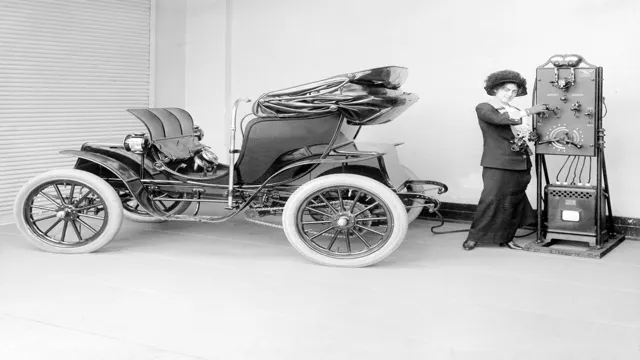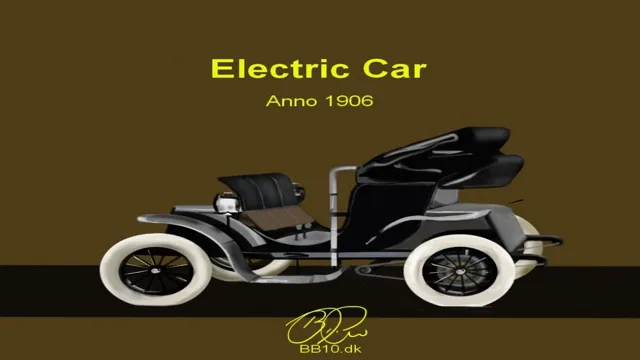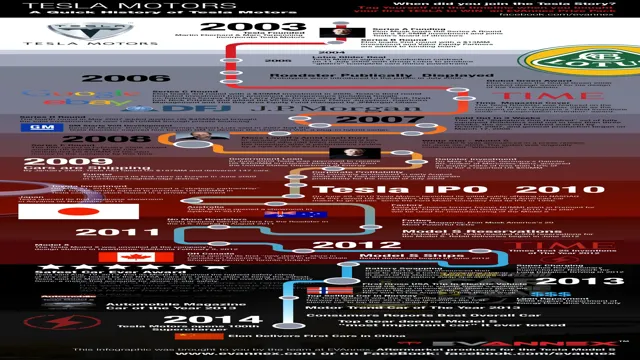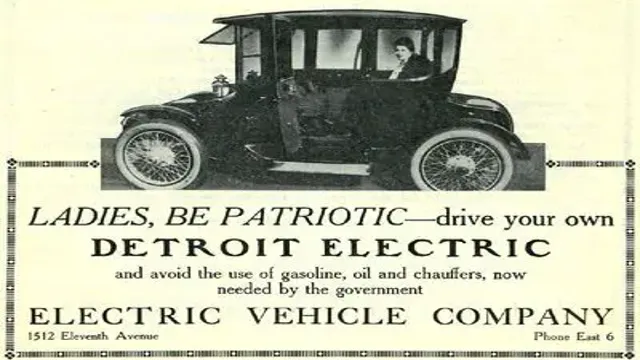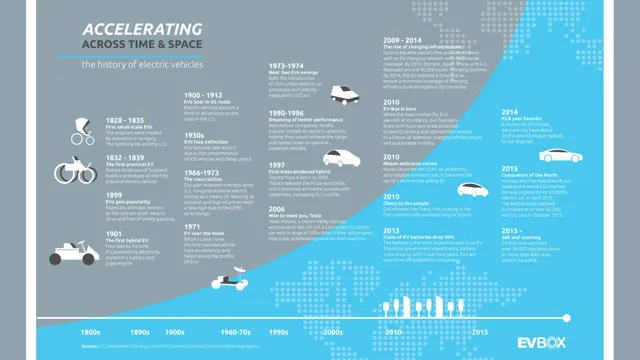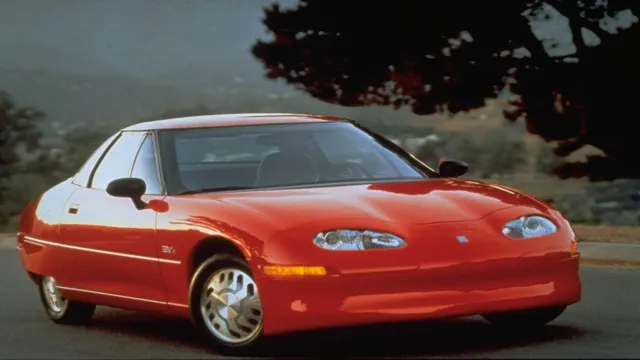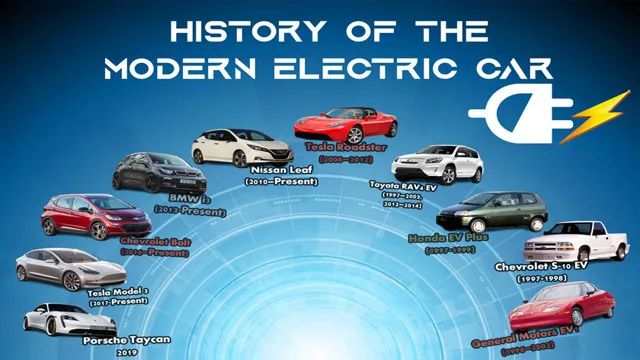The Electrifying Evolution: A Fascinating Look at the History of Electric Motors and Cars
Electric cars are all the rage nowadays, but do you know the history behind them? Let’s delve into the fascinating story of electric motors and how they transformed into the eco-friendly vehicles we see today. The first electric car came about in the early 1800s, but they were short-lived as gasoline-powered cars dominated the market. However, with advancements in technology and growing concerns about the environment, electric cars made a comeback in the 21st century.
Electric motors have played a significant role in history, powering everything from trains to household appliances. They are efficient, reliable, and environmentally friendly. In recent years, electric cars have become an increasingly popular option as people strive to reduce their carbon footprint.
From early experiments with electric motors to revolutionary advancements in the 21st century, the history of electric motors and cars is a fascinating story of innovation and progress. Join us as we explore the past and present of electric cars, and what the future holds for this exciting industry.
Early Electrical Experiments
Before the invention of the electric motor, people relied on other forms of energy such as steam, water, and wind for power. However, in the early 19th century, a series of experiments were conducted on electromagnetism that paved the way for the development of the electric motor. Michael Faraday, a British physicist, was one of the pioneers in this field.
He discovered that electricity and magnetism are related, and that a magnetic field can be created when an electric current flows through a wire. This led to the development of the first electric motor, which used a wire carrying current to create a rotating magnetic field. As the field rotated, it caused a rotor to turn, resulting in the production of mechanical energy.
The first electric car was also invented in this era. Thomas Davenport developed a motor that was capable of powering a small model car. However, both electric cars and motors were not widely adopted until the late 19th century due to issues such as high production costs and the lack of infrastructure to support them.
Nonetheless, these early experiments laid the foundation for the history of electric motors and cars we know today.
Thomas Davenport’s Electric Motor
Thomas Davenport was a remarkable inventor who made significant contributions to the world of electrical experiments. Davenport built his first electric motor in 1834, which became a fundamental creation in the history of electro-technology. It was a simple apparatus, consisting of a wire-carrying armature that rotated between the poles of a horseshoe magnet.
Davenport’s electric motor converted electricity to mechanical power and was a groundbreaking invention in its time, marking a turning point in human innovation. With this invention, Davenport’s work paved the way for further development of electric motors and other electrical machines that are used widely today. It is incredible to think that such a simple mechanism had such a massive impact on the development of electrical engineering.
Who knows what other great inventions will come in the future as we continue to advance technologically?
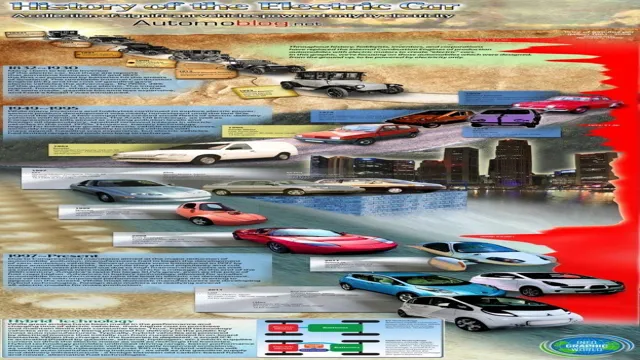
The Rise of Electric Cars
The history of electric motors and cars can be traced back to the early 19th century, when electric-powered vehicles began appearing on the streets of major cities. However, it was not until the late 1800s that electric cars began to see real success. In fact, by the early 1900s, electric cars accounted for nearly one-third of all cars on the road in the US.
This success was largely due to the development of reliable, rechargeable batteries. However, the rise of cheap gasoline and the production of cars with internal combustion engines gradually led to the decline of electric cars. Over the past few years, however, electric cars have made a major comeback.
This is due to a variety of factors, including more advanced battery technology, improved charging infrastructure, and greater consumer demand for environmentally friendly vehicles. As a result, we are now seeing an explosion in the popularity of electric cars, with more and more people recognizing the many benefits they offer.
Development of the First Electric Car
The development of the first electric car is a fascinating story that began in the early 1800s. The desire for a less polluting and more sustainable form of transportation dates back centuries, and electric cars were initially seen as the solution. However, it wasn’t until the late 1800s that the first practical electric car was developed, and it was invented by Thomas Davenport.
His invention was a small model car that could run on a battery, but it wasn’t until the early 1900s that electric cars began to gain widespread popularity. This was thanks in part to the creation of the lead-acid battery, which meant that electric cars could travel further than ever before. Unfortunately, the rise of gasoline-powered cars in the early 1900s led to the decline of electric cars, and it wasn’t until the 2000s that they began to see a resurgence.
Today, electric cars are hailed as the future of sustainable transportation, and manufacturers around the world are competing to create the best electric vehicle.
Popularity and Advancements in the 20th Century
The rise of electric cars in the 20th century has been driven by a combination of factors, including environmental concerns, technological advancements, and government incentives. As people became more aware of the impact of fossil fuels on the environment, they began to seek out alternatives that were more sustainable and eco-friendly. At the same time, improvements in battery technology and electric motors made it possible to build cars that could run solely on electricity, and the cost of these technologies began to come down.
Governments around the world also provided incentives for people to buy electric vehicles, such as tax breaks and subsidies, which helped to increase their popularity. Today, electric cars are becoming more and more commonplace, and as the technology continues to improve, they are likely to become even more popular in the coming years.
Decline and Resurgence in the 21st Century
Electric Cars The 21st century has seen a decline in traditional gasoline-powered vehicles and a resurgence of electric cars. Electric cars are becoming increasingly popular with consumers who want to be more environmentally conscious and save on fuel costs. Electric cars are powered by a rechargeable battery instead of gasoline, which means they emit zero emissions and are more efficient.
While electric cars used to be seen as expensive and impractical, they are now becoming more affordable and practical for everyday use. Many countries and cities are encouraging the adoption of electric cars by offering subsidies and incentives. Electric cars have come a long way and are now a viable option for anyone in the market for a new vehicle.
With technology constantly improving, it won’t be long before electric cars become the norm.
Modern Electric Motors and Cars
The history of electric motors and cars dates back to the early 19th century, when inventors began experimenting with electric-powered vehicles. However, it wasn’t until the late 20th century that modern electric motors and cars began to gain popularity. Today, electric vehicles are more efficient and affordable than ever before, thanks to advances in battery technology and electric motor design.
In fact, electric cars are already outselling many traditional gas-powered models in some countries. With more and more focus on reducing carbon emissions and dependence on fossil fuels, the future of electric cars looks bright. Consumers and automakers alike are embracing this technology and working to make electric cars practical and affordable options for everyone.
Advancements in Battery Technology
Electric cars have become increasingly popular over the years, and advancements in battery technology have been a crucial factor in making this possible. With modern electric motors, cars can travel further and have more power than ever before. These advancements in battery technology have also made electric vehicles more cost-effective, as the batteries retain more energy for longer periods of time, reducing the need for frequent replacements.
Additionally, modern electric cars are much quieter and cleaner than traditional gas-powered vehicles, emitting zero emissions during operation. As electric cars continue to gain traction, battery technology will undoubtedly continue to improve, making them even more accessible and practical for everyday use. So, if you’re looking for an eco-friendly and cost-effective mode of transportation, an electric car may be just what you need.
Impact on the Automotive Industry
As the world shifts towards more sustainable lifestyles, the automotive industry is rapidly evolving to keep up with the changing times. One of the most significant changes is the development of modern electric motors and cars. These vehicles use electric motors powered by rechargeable batteries, making them much more efficient than traditional gas-powered cars.
Not only do they reduce carbon emissions, but they also require less maintenance and offer a smoother driving experience. The use of regenerative braking in these cars also means that the battery can be partially recharged as the car slows down. This innovative technology is not without its challenges, however.
Electric cars are still expensive compared to their gas counterparts, and the lack of widespread charging stations makes it difficult for long-distance travel. Nonetheless, the future looks bright for the electric car industry, with many car manufacturers investing heavily in its development. It’s only a matter of time before we see a world in which electric cars are the norm rather than the exception.
The Future of Electric Cars
The history of electric motors and cars dates back to the early 19th century. In fact, the first electric vehicle was developed as early as 183 However, it was not until the late 1800s that electric cars became more popular as they were seen as a cleaner, more efficient alternative to their gas-powered counterparts.
Unfortunately, the invention of the internal combustion engine soon took over and electric cars were pushed aside for many years. But with increasing concern for the environment and a push towards renewable energy sources, electric cars are now making a comeback. In recent years, we have seen a surge of electric cars on the market and advances in battery technology have made it possible for electric cars to have greater range and better performance.
With the advancement of technology and increased awareness about the impact of fossil fuels, the future of electric cars looks very promising. It is clear that electric cars are no longer a science experiment or a passing fad, but are instead here to stay and revolutionize the way we drive.
Electric Cars in the Age of Climate Change
Electric Cars Electric cars are becoming increasingly popular as people look for more environmentally friendly ways to get around. With global climate change becoming a significant concern, electric cars present a future where we can reduce our dependence on fossil fuels and cut down on carbon emissions. These cars are powered by electricity, making them much cleaner and more efficient than traditional gas-powered vehicles.
With advancements in battery technology, electric cars are becoming more affordable and practical for everyday use. While there are still some challenges to overcome in terms of charging infrastructure and range anxiety, the benefits of electric cars are hard to ignore. With zero emissions and significantly lower operating costs, electric cars are the way of the future.
As more people adopt this technology, we can help to build a more sustainable future for ourselves and generations to come.
Conclusion
In conclusion, the history of electric motors and cars is a fascinating story of innovation, perseverance, and the power of human ingenuity. From the early experiments of Faraday and Volta to the sleek and sophisticated electric vehicles on our roads today, the electric motor has played a crucial role in shaping our world and improving our lives. While there have certainly been setbacks and challenges along the way, the enduring appeal of electric power continues to inspire scientists, engineers, and entrepreneurs to push the boundaries of what is possible.
So whether you’re cruising down the highway in your Tesla or simply plugging in your smartphone, remember that the history of electric motors and cars is a testament to the remarkable progress we can achieve when we put our minds to it.”
FAQs
What is the history of electric cars?
Electric cars have been around since the 19th century when inventors such as Thomas Davenport and Robert Anderson created small electric vehicles. However, it wasn’t until the 21st century that electric cars became popular due to advancements in battery technology and environmental concerns.
Who invented the electric motor?
The first electric motor was invented by the British scientist Michael Faraday in 1821, who discovered that a magnetic field could create an electric current.
How do electric motors work?
Electric motors convert electrical energy into mechanical energy through the interaction of a magnetic field and electric current. The motor contains a rotor and stator, with the rotor rotating due to the magnetic field created by the stator.
What are the benefits of using electric motors and cars?
Electric motors and cars have many benefits, including reducing dependence on fossil fuels, decreasing air pollution, and improving energy efficiency. Additionally, electric cars are often quieter and require less maintenance than traditional gasoline-powered cars.
